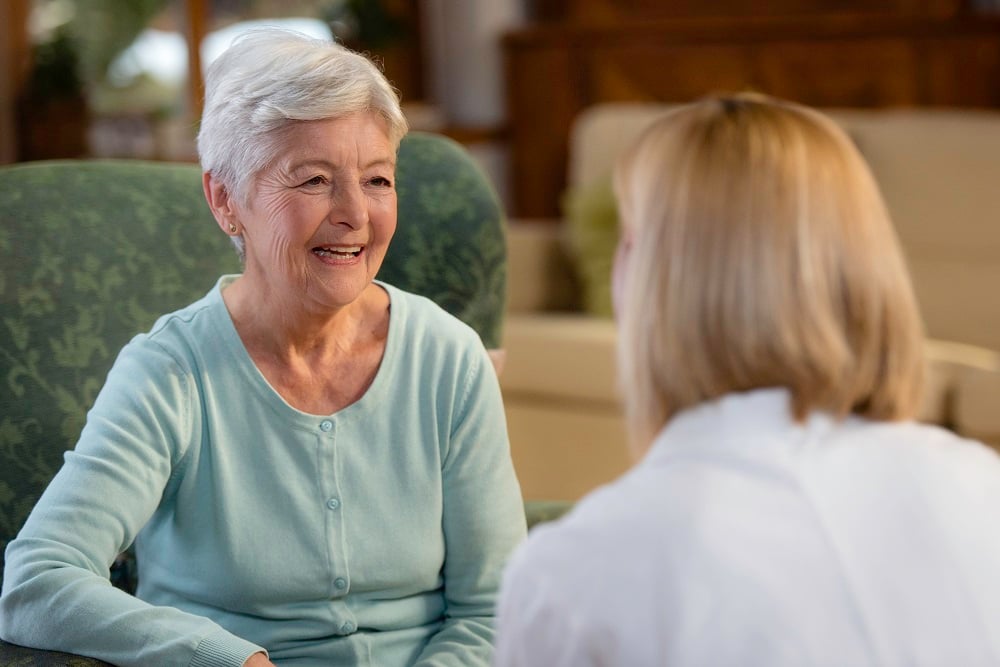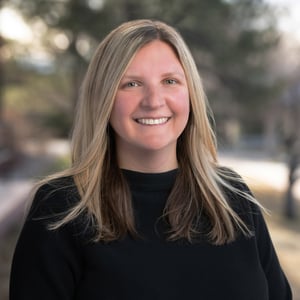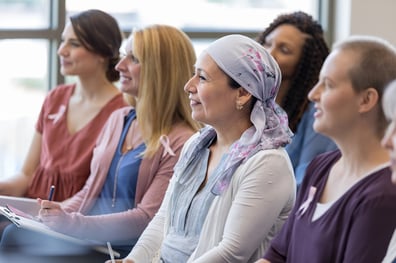Oncology Social Workers: An Important Part of Your Care Team
4 min read

As Social Work Month 2022 comes to a close, Rocky Mountain Cancer Centers (RMCC) wants to share some interesting facts about oncology social workers and their role in cancer treatment:
- RMCC has a team of social workers that practice in their clinics.
- In 2021, RMCC social workers helped over 5,000 patients with issues ranging from psychological and emotional support to assistance with practical needs (like financial concerns and transportation).
- Experiencing emotional distress during cancer treatment – and even afterwards – is very common, according to various studies.
What Do Cancer Social Workers Do?
So, what is oncology social work and what do RMCC social workers do? At RMCC, social workers are an integral part of the multi-disciplinary care team that can include oncologists, surgeons, advanced practice providers, nurses, and other professionals to help patients achieve the best outcome.
 “There’s a pretty wide range of what we’re able to help people with,” said Amy Colver, social work manager at RMCC. “Mainly, we’re focused on getting to know patients and assessing their situation to help them with managing distress and focus on areas of life that are meaningful to them.”
“There’s a pretty wide range of what we’re able to help people with,” said Amy Colver, social work manager at RMCC. “Mainly, we’re focused on getting to know patients and assessing their situation to help them with managing distress and focus on areas of life that are meaningful to them.”
“We help patients with the transitions they face along their journey: new diagnosis, survivorship, end of life,” Amy said. “Our services are varied depending on the patient’s unique situation. And we don’t just help patients, but we also help to support their loved ones. People may think that social workers just help with practical things – and we do that, but there’s so much more to our role than that. It’s all very intertwined.”
Most people recognize that stress feels uncomfortable. And many people also recognize that stress can be detrimental to health. Moreover, there are few situations that are more challenging than a cancer diagnosis and treatment, which adds both stress and poor health to a patient’s life. RMCC’s social workers help to alleviate some of that stress (with practical solutions) and assist patients and their loved ones in processing their emotions in a healthy way.
“Oncology social work is a unique field partially because there are so many different kinds of cancer and outcomes,” Amy said. “We’re meeting people during one of the most vulnerable times in their lives and have the knowledge to not only be present through a very challenging situation but to tailor our services to each person’s unique situation and process.”
In addition to receiving services from licensed oncology social workers, RMCC patients have access to three other benefits:
 Assistance with Advance Care Planning, which is recommended for everyone, regardless of health or prognosis.
Assistance with Advance Care Planning, which is recommended for everyone, regardless of health or prognosis.- Participating in studies that examine the interconnection between physical and emotional health in cancer treatment.
- A diverse assortment of support groups with others who share similar experiences.
“I’m really proud because we offer a wide variety of groups for emotional support and ones that address different subjects like nutrition, mindfulness, and activating happiness,” said Amy. “RMCC is very comprehensive. We also have opportunities to participate in psycho-social research in which patients can receive information, support, and compensation for enrollment.”
Having a Social Worker Involved in Cancer Treatment Leads to Better Outcomes
In her article, A Cognitive Approach to Cancer Treatment, Dr. Marlena Ryba describes a landmark study at the Ohio State University Comprehensive Cancer Center: “The findings were clear: immunity improves as stress goes down.”
The study “found that patients receiving a psychological intervention showed significant improvements in anxiety, perceived social support, better dietary habits, and even a reduction in smoking. As important, patients receiving the intervention were also better able to maintain their chemotherapy regimens in comparison to a control group.”
Symptoms of emotional distress can even persist after treatment is concluded, even in best-case scenarios in which the treatment is successful. When RMCC spoke with oncologist and cancer life coach Dr. Deborah Butzbach, she said “There’s so much brain drama. If you’re living your life in fear of cancer – even if you’re cancer free – then cancer wins.”
“I think there are times when people are intimidated or afraid (about working with social workers),” said Amy. “But the emotional pieces that come up with cancer diagnosis are very normal. “And we have the skills to help our patients and caregivers process and cope with it, as well as address practical concerns like financial challenges and a need for resources.”
If you’d like to get in touch with an RMCC social worker, you can ask any member of your care team to connect you with one. Or, contact your clinic directly and ask to speak with the social worker. Click here to learn more about the social worker associated with your clinic.